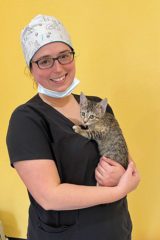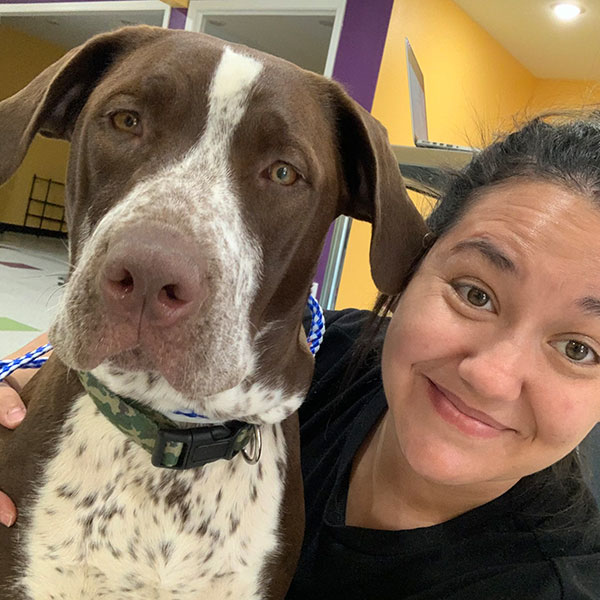Pet Clinic Envisions ‘No Needless Kill Community’
Wendy Heckman has a chart she shares during February’s National Spay and Neuter Month. It’s a “reproductive pyramid,” depicting the population explosion that can occur when a dog or cat is allowed to reproduce unchecked, and shows that within six years, an unspayed female cat can yield more than 11 million descendants! “The only way to control dog and cat overpopulation and the euthanizing of adoptable animals is by decreasing birth rates, and that’s a major part of our mission,” says Heckman, Executive Director of Carol House Quick Fix Pet Clinic.
Operating in the city of St. Louis since 2012, the clinic serves more than 10,000 animals each year with an accessible, affordable model of spay and neuter services. “We don’t want lack of income, transportation or the like to prevent people from doing what’s right for their pets or the greater animal community,” says Heckman. That includes ongoing wellness, she says, and so the clinic also offers low-cost vaccinations, testing, microchipping, deworming, flea prevention and more. When typical veterinary costs can run in the hundreds of dollars for these types of services, Carol House fees start at $20 and some families qualify for free services through a partnership the clinic has with BARC St. Louis.

“More than 40% of the U.S. population is low-income or working poor, with things really coming to a head during COVID when many families were forced to give up their pets in order to meet other needs. Being able to provide these resources is its own reward every day – people are so thankful,” says Heckman. Through “very passionate” donors, including founding member Brook Dubman of Carol House Furniture (hence the name), the clinic has expanded its services in St. Louis and recently open a second location in Rolla, she says. An anonymous Donor-Advised Fund of YouthBridge has been key to helping Carol House reach rural communities.
“Barbara (Carswell) first introduced us to the Fundholders and we’ve received a generous grant every year since, which has enabled us to serve almost 2,000 animals” says Heckman. When Carswell, the YouthBridge CEO, learned about the clinic, she immediately saw the fit with the Fundholders’ interests and was able to provide them with a proposal that they liked. Initially, the funding supported a transport program bringing animals from outlying areas into St. Louis for spay, neutering and other services, since very few resources exist in rural counties. Now, the money is used to support the Rolla clinic, which can service a wide, remote region. “You see stories of rural properties overrun with dogs and cats, by well-intentioned people that just cannot access the help they need. This is going to have a significant impact, I believe, and we’re so grateful for the partnerships that make it possible.”
If you would like to donate or have any questions about this organization, please contact Allison McDonald.
